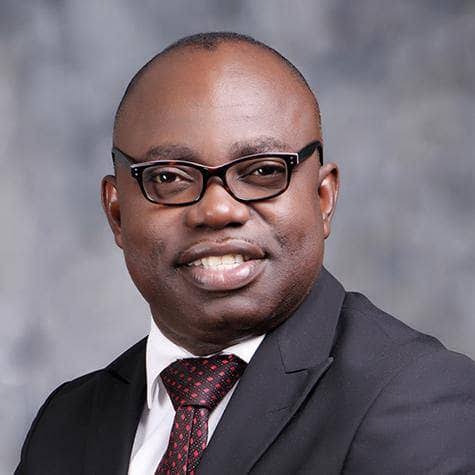Barrister Frank Tietie, the Executive Director of the Citizens Advocacy for Social & Economic Rights (CASER), has described the mood in the country in an interview on a VOA Interview Program, Day Break Africa which focused on the Nigerian Hunger Protest scheduled to hold from August 1, 2024.
In the interview Tietie expressed the opinion that the Fear of the Nigerian government over the Hunger Protest is Unnecessary.
Below are excerpts of the view and responses of Frank Tietie to the questions put forward to him by the VOA interviewer:
VOA: The President of Nigeria, Bola Tinubu has beefed up security at all the nation’s borders and cities ahead of a plan “Hunger Protest” scheduled nationwide for August 1st.
Citizens have also stocked up food and essentials as organisers have vowed to shut down markets and cripple commercial activities.
“The atmosphere is charged with a level of uncertainty. First, the uncertainty revolves around the amorphous nature of the persons said to be organising the protests. It’s very palpable. And we are witnessing a foray of groups holding press conferences across the cities to announce their disassociation from the planned protests.”
Some are saying that President Bola Tinubu did not move fast enough to address the underlying concerns of those planning these protests. But the government is saying it needs more time to put measures in place to take care of hunger, tackle the social issues.
“The idea is that citizens find it quite ironical that the President was not in any way patient in instituting reforms which included the immediate removal of subsidy and the floating of the Naira. Both policies of government that triggered untold hardship in the immediate terms on the entire population. Now it becomes very strange as they people consider, that the President is telling them to be patient whereas the president wasn’t patient on his part.
“Because, it was thought that the President could have done it in a more gradual manner. So that the impact of the removal of subsidy and the floating of the Naira for an economy that is largely and hugely dependent on import, is something that the President was too swift. As such their demand is clear that the President should make a sharp U-turn and reverse the policies of removal of subsidy and floating of the Naira against the US Dollar.”
VOA: Supporters of the government and even President Bola Tinubu says he has already increased the minimum wage by over 100 per cent and that given more time, he has the potential to address other issues. Is the minimum wage not enough as at this moment?
“It is very far from it. We are talking about a minimum wage that can only affect less than 5 per cent of the population. Those are the far lesser number that are directly employed by the federal government. So the increase in minimum wage is an attestation to the increased inflation which would also buttress the fact that prices are bound to go up in response to the wide understanding in the marketplace that wages have been increased. Yet, we are talking about a small number of Nigerians whose wages have been increased by the new minimum wage act that has been signed into law.
BOA: What are your thoughts about fears by some state Governors, some actors in the Nigerian political scene that this might get out of hand? Even the federal government is already blaming “machineries” as being part of these protests.
“I think that if the people are planning a protest and they gave a notice to the government, the presumption is that they are well-meaning. There’s no spontaneity like we found in the case of the Arab spring or like what we experienced in other parts of the continent particularly, Kenya.
The organisers are putting the government on notice and telling the government plainly that this is what they want; giving an opportunity to the government to correct the wrongs and make some fundamental and significant changes that can assuage their minds.
“So I think that the fear of the government is unnecessary. The government could have responded in more meaningful terms than engaging in a campaign that tends to criminalise those planning the protests and discouraging citizens from participating .”






